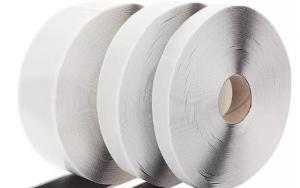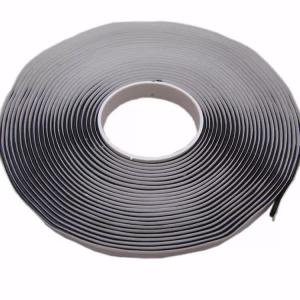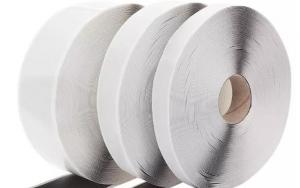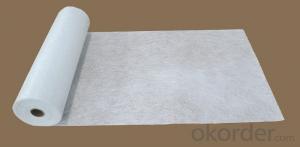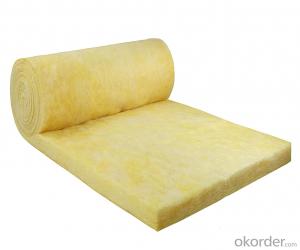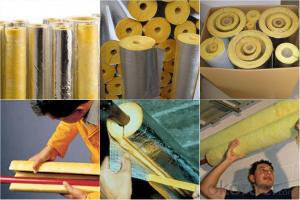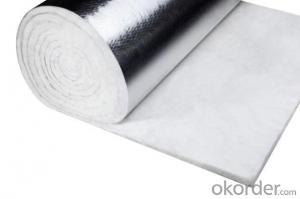Sealant Tape- fiberglass vacuum infusion process
- Loading Port:
- Shanghai
- Payment Terms:
- TT or LC
- Min Order Qty:
- 500 m²
- Supply Capability:
- 1000000 m²/month
OKorder Service Pledge
OKorder Financial Service
You Might Also Like
Sealant Tape
Product Description
Sealant tape is developed for blade and aerospace industry, yacht industry, etc. Based on advanced technology, the products have high surface adhesion force on vacuum bag and a variety of tools. In the curing cycle it has excellent seal, and very easy to remove from the cold or heating surface after the curing.
Technique Data
Adhesive: Rubber
Adhesive Side: Single Sided
Adhesive Type: Pressure Sensitive, Hot Melt
Design Printing: Offer Printing
Material: Butyl
Feature: Waterproof
Use: Carton Sealing
Type: Waterproof Membrane
BACKING: BUTYL RUBBER
TAPE COLOR: GREY/WHITE/BLACK
LINER COLOR: PAPER: WHITE
THICKNESS:0.6MM/0.8MM/1MM/1.5MM/2MM/3MM/5MM....
CUT ROLL WIDTH: 6MM/8MM/10MM/20MM/30MM/40MM/50MM...
CUT ROLL LENGTH: 10M/20M/30M/50M....
OPTION: SINGLE SIDE/DOUBLE SIDE/ALUMINUM BUTYL
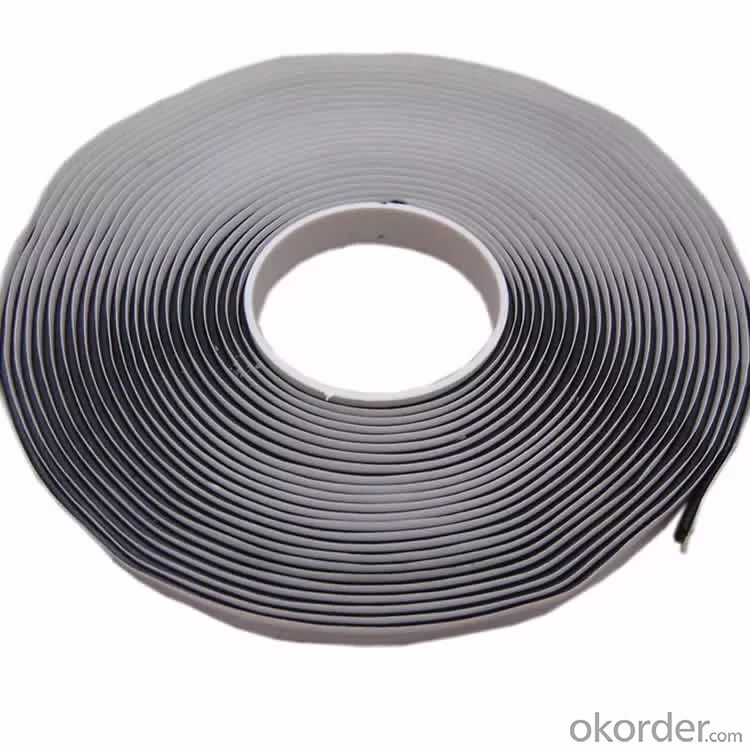
- Q:How does fiberglass mat tissue perform in terms of mold and mildew resistance?
- Fiberglass mat tissue possesses exceptional mold and mildew resistance. Its inherent moisture resistance prevents the proliferation of mold and mildew. Moreover, fiberglass is impermeable and unsuitable for the flourishing of these microorganisms. Furthermore, fiberglass mat tissue finds extensive usage in areas with high humidity, like bathroom walls or showers, and has proven highly efficient in deterring mold and mildew growth. All in all, fiberglass mat tissue exhibits outstanding performance in terms of mold and mildew resistance, rendering it a dependable option for situations where these issues are prominent.
- Q:Can fiberglass mat tissue be used for waterproofing?
- Yes, fiberglass mat tissue can be used for waterproofing. It is commonly used as a reinforcement material in waterproofing systems, such as for roofs, walls, and foundations. The fiberglass mat tissue is impervious to water and helps to provide an additional layer of protection against moisture intrusion.
- Q:What is the impact resistance of fiberglass mat tissue at high temperatures?
- The impact resistance of fiberglass mat tissue at high temperatures is generally quite good. The fiberglass material offers excellent strength and durability, allowing it to maintain its structural integrity even when exposed to elevated temperatures. However, it is important to note that the specific impact resistance can vary depending on factors such as the thickness and composition of the fiberglass mat tissue. Overall, fiberglass mat tissue is known for its ability to withstand impacts and maintain its performance even under high temperature conditions.
- Q:Can fiberglass mat tissue be used for mold making?
- Typically, fiberglass mat tissue is not employed in the process of mold making. Instead, it serves as a thin and lightweight substance composed of interwoven fiberglass strands. Its primary function lies in fortifying and bolstering composite materials, particularly fiberglass laminates. When it comes to mold making, silicone rubber, urethane rubber, or latex are commonly utilized materials. These possess flexibility and possess the ability to impeccably capture intricate details, making them optimal for generating molds of various objects. Furthermore, they possess excellent release properties, thereby facilitating the effortless removal of the mold from its original counterpart. Conversely, fiberglass mat tissue is rigid and lacks the necessary flexibility required in mold making. Rather, it finds greater suitability in applications necessitating strength and reinforcement, as opposed to the replication of intricate shapes or the creation of molds. Hence, if your aim is to fabricate molds, it is advised to select a material explicitly intended for that purpose, instead of utilizing fiberglass mat tissue.
- Q:Can fiberglass mat tissue be used for aerospace applications?
- Indeed, fiberglass mat tissue proves to be suitable for aerospace applications. This lightweight and robust material finds extensive use in the aerospace industry for various purposes. It is frequently employed as a reinforcing material in composite structures, including aircraft wings, fuselages, and other components. The exceptional strength-to-weight ratio of fiberglass mat tissue makes it a favorable choice for aerospace applications, aiding in the reduction of overall aircraft weight without compromising structural integrity. Furthermore, fiberglass mat tissue exhibits resistance to corrosion and can withstand extreme temperatures, both of which are crucial considerations in aerospace environments. In conclusion, fiberglass mat tissue is a versatile material that meets the rigorous requirements of aerospace applications and is widely embraced within the industry.
- Q:What is the weathering resistance of fiberglass mat tissue?
- Fiberglass mat tissue is renowned for its high weathering resistance. It is composed of a blend of fiberglass strands and a binder material, such as polyester or acrylic. This combination produces a sturdy and resilient material that can withstand a range of weathering factors, such as sunlight, moisture, and temperature fluctuations. The fiberglass strands within the mat tissue offer exceptional mechanical strength, preventing the material from succumbing to external stress or pressure. This strength enables the mat tissue to endure the impact of wind, rain, and other weather elements without sustaining significant damage. Moreover, the binder material utilized during the manufacturing process of fiberglass mat tissue is often specially formulated to resist UV radiation. This UV resistance effectively shields the material from degradation and fading caused by prolonged exposure to sunlight. It also contributes to maintaining the structural integrity and strength of the mat tissue over time. Furthermore, fiberglass mat tissue exhibits resistance to moisture and water absorption. This resistance ensures that the material does not weaken or deteriorate when exposed to rain, humidity, or other sources of moisture. Consequently, the mat tissue remains intact and retains its performance properties even in wet or humid conditions. Overall, fiberglass mat tissue boasts excellent weathering resistance, making it a highly sought-after option for various applications that demand durability and longevity in outdoor environments.
- Q:What is the expected lifespan of fiberglass mat tissue in residential applications?
- The expected lifespan of fiberglass mat tissue in residential applications can vary depending on various factors such as the quality of the material, the installation process, and the environmental conditions it is exposed to. However, on average, fiberglass mat tissues are designed to have a lifespan of around 20 to 30 years. Fiberglass mat tissues are commonly used in residential applications for reinforcing and strengthening purposes, particularly in areas prone to moisture and water damage such as bathrooms, kitchens, and basements. They are known for their excellent resistance to mold, mildew, and rot, making them a popular choice in these areas. With proper installation and maintenance, fiberglass mat tissues can provide long-lasting support and protection to the underlying surfaces. However, it is important to note that they can be susceptible to damage if not handled or installed correctly. Any improper installation or exposure to extreme conditions such as excessive heat or direct sunlight can significantly reduce their lifespan. Regular inspection and maintenance of fiberglass mat tissues are essential to ensure their optimal performance and longevity. This may include checking for any signs of wear, tear, or water damage, and promptly addressing any issues that arise. Additionally, periodic cleaning and sealing can help prolong the lifespan of the material. In summary, while the expected lifespan of fiberglass mat tissue in residential applications is typically around 20 to 30 years, it is crucial to consider factors such as quality, installation, and maintenance to ensure its durability and longevity.
- Q:Can fiberglass mat tissue be used for making electrical enclosures?
- No, fiberglass mat tissue is not suitable for making electrical enclosures. Electrical enclosures require materials that have good electrical insulation properties to prevent electrical shocks and short circuits. Fiberglass mat tissue is primarily used for reinforcement in composites and does not possess the necessary electrical insulation properties. Materials such as plastics, polymers, or metals with appropriate electrical insulation characteristics should be used for making electrical enclosures.
- Q:Is fiberglass mat tissue suitable for electrical insulation applications?
- Yes, fiberglass mat tissue is suitable for electrical insulation applications. Fiberglass mat tissue is made from glass fibers that are bonded together with a resin, creating a strong and durable material. It has excellent electrical insulation properties, such as high dielectric strength and low electrical conductivity. This makes it ideal for applications where electrical insulation is required, such as in transformers, motors, and electrical switchgear. Additionally, fiberglass mat tissue is also resistant to moisture, chemicals, and heat, further enhancing its suitability for electrical insulation applications.
- Q:Does fiberglass mat tissue provide good fire protection?
- No, fiberglass mat tissue does not provide good fire protection.
1. Manufacturer Overview |
|
|---|---|
| Location | |
| Year Established | |
| Annual Output Value | |
| Main Markets | |
| Company Certifications | |
2. Manufacturer Certificates |
|
|---|---|
| a) Certification Name | |
| Range | |
| Reference | |
| Validity Period | |
3. Manufacturer Capability |
|
|---|---|
| a)Trade Capacity | |
| Nearest Port | |
| Export Percentage | |
| No.of Employees in Trade Department | |
| Language Spoken: | |
| b)Factory Information | |
| Factory Size: | |
| No. of Production Lines | |
| Contract Manufacturing | |
| Product Price Range | |
Send your message to us
Sealant Tape- fiberglass vacuum infusion process
- Loading Port:
- Shanghai
- Payment Terms:
- TT or LC
- Min Order Qty:
- 500 m²
- Supply Capability:
- 1000000 m²/month
OKorder Service Pledge
OKorder Financial Service
Similar products
New products
Hot products
Hot Searches
Related keywords
